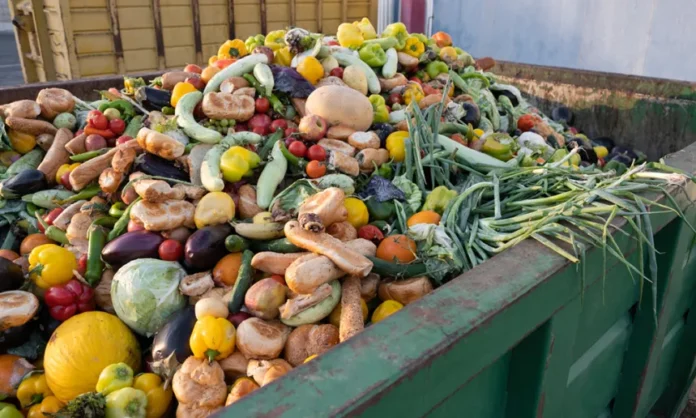The Environmental Impact of Food Waste
By Baily Ramsey
Food waste is a multifaceted issue that affects countries and communities around the world. In the United States alone, food waste accounts for 30-40 percent of the food supply, corresponding to approximately 133 billion pounds of waste each year.
While food waste raises economic and humanitarian concerns, it doesn’t stop there – it also has long-lasting environmental consequences that must be addressed. Keep reading to explore how food waste contributes to multiple environmental issues and the importance of managing food waste in a sustainable way.
How Does Food Waste Affect the Environment?
For many, there’s a widespread belief that the effects of food waste end when the food reaches landfills. However, discarding food has many environmental consequences that exceed the immediate loss of food itself. Keep reading to learn about the 5 major effects of food waste on the environment.
Contributes to Global Warming
The decomposition of food waste in anaerobic conditions results in methane production, a powerful greenhouse gas that affects the earth’s temperature and climate system. In the United States, an estimated 58 percent of the methane emissions released to the atmosphere from municipal solid waste landfills are from landfilled food waste. Since methane traps more heat in the atmosphere per molecule than carbon dioxide, this is a growing concern that requires immediate attention.
Resource Depletion
When we waste food, we also waste all of the valuable resources required to produce it, including water, energy, land, and labor. In the United States alone, food waste ends up wasting a quarter of our water supply in the form of uneaten food. Overall, growing food that goes to waste uses 19% of our fertilizer, 18% of our cropland, and 21% of our landfill volume.
Degradation of Land
When food is wasted, the land used to produce it also goes to waste. Despite large amounts of food being sent to landfills, there’s still a growing demand for agricultural land to produce food, therefore contributing to unnecessary deforestation. In total, an estimated 1.4 billion hectares, or 28% of the world’s total agricultural land, is utilized to produce food that is wasted. In addition, food waste contributes to excess landfill use, which not only takes up valuable land space but also contributes to soil contamination.
Harms Biodiversity
Food waste is among the various human activities that lead to a loss of biodiversity, with deforestation and landfill pollution leading to natural habitat destruction and contamination. In addition, climate change has altered marine, terrestrial, and freshwater ecosystems around the world, causing the loss of local species, increased diseases, and mass mortality of plants and animals, resulting in the first climate-driven extinctions.
Air and Water Pollution
Food waste causes both air and water pollution, contributing to the severe negative consequences of landfill disposal. In addition to releasing methane and carbon dioxide into the atmosphere, food waste in landfills produces leachate, a byproduct derived from municipal solid waste. This liquid contaminates surface water sources, which affects wildlife, pollutes drinking water supplies, and spreads disease.
How to Mitigate the Effects of Food Waste
Businesses that want to improve their sustainability efforts should implement the 3 Rs—reduce, reuse, recycle—to minimize the environmental impact of food waste. Here’s a deeper explanation of each area.
Reduce
Reducing food waste at the source should be a top priority for individuals and businesses. Besides mitigating food from landfills, reducing waste helps businesses conserve resources and improve profitability. There are multiple strategies that organizations can implement to reduce large-scale waste, such as enhancing storage and transportation logistics, using technology to improve demand forecasting, conducting a food waste audit to identify waste sources, training staff on sustainable food handling practices, and getting involved in local donation initiatives.
Reuse
Reusing food waste is a great way for businesses to create new revenue streams and meet their corporate social responsibility goals. Upcycling waste, which is the act of transforming food items into higher-value products, diverts food from landfills and prevents resources from being lost, making it an important component of sustainability efforts. Some strategies that businesses can explore include converting food waste into animal feed, turning waste into compost, or using surplus food to create new menu items.
Recycle
Food waste recycling can take many forms, from small household initiatives to large recycling efforts, making it an attainable solution for individuals and businesses alike. At the household level, families can create at-home composting in their backyard or get involved in community recycling efforts.
Businesses, on the other hand, require more comprehensive solutions to handle large amounts of food waste in an environmentally friendly way. With all eyes on waste management solutions, innovative technology and strategies have emerged to handle food waste, including anaerobic digestion, composting, and biofuel production, among others.
Final Thoughts
The environmental consequences of food waste have given it a new spotlight in the United States and around the globe. To address this issue, the U.S. has set a goal to cut food loss and waste in half by the year 2030, highlighting the importance of managing food waste in a sustainable way.
Author BIO:
Baily Ramsey is a writer at Shapiro Enterprises, an organic waste management and recycling company. Specializing in educational content creation, she creates content for various industries, with a particular interest in environmental initiatives.
